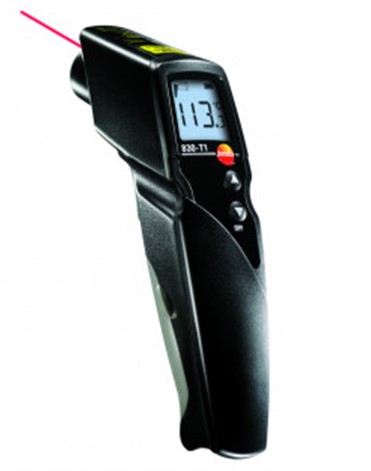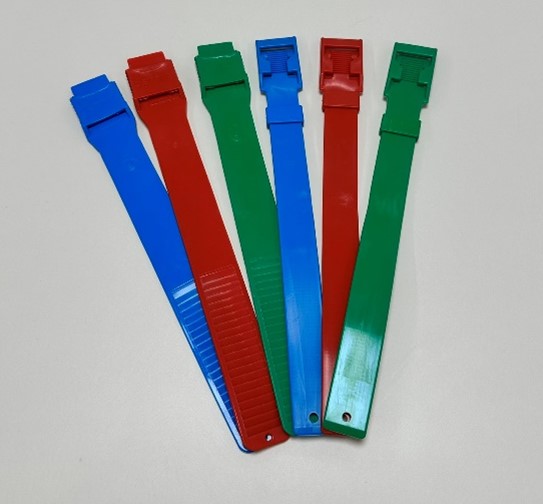Donald Trump said the US will buy more Argentine beef to lower prices.

US President Donald Trump said today during his flight aboard Air Force One from Florida to Washington that this is the first indication of what benefits or trade improvements the United States could offer Argentina. He stated that the northern country could purchase more Argentine beef.
"We'll buy beef from Argentina," the White House chief told the reporters accompanying him. "If we do that," he added, "we'll lower beef prices ."
After the announcement, a local journalist asked a pointed question: "What do you say to American farmers who believe the agreement benefits Argentina more than it benefits them as an important trading partner?"
In response to a question, the US President explained that "Argentina is fighting for its life" and that "nothing benefits Argentina." He also reaffirmed his geopolitical alliance and assured them that he would try to "help them survive in the free world."
He also praised Javier Miley. "I like the president of Argentina; I think he's trying to do the best he can," he said.
President Donald Trump speaks to reporters aboard Air Force One, Sunday, Oct. 19, 2025, en route to Joint Base Andrews, Maryland, after returning from a trip to Florida. (AP Photo/Mark Schiefelbein)
This is the first information from North American sources, and none other than President Trump, regarding the type of trade improvement that the Nordic country could offer Argentina, in addition to the $20 billion swap, the possibility of additional loans of another $20 billion from private banks and the intervention already initiated by the Treasury by selling dollars and buying Argentine bonds on the Argentine market, to help the government of Javier Milea avoid a sharp jump in the DOLLAR and country risk in the pre-election period.
Currently, according to official information from the Ministry of Economy, Argentina's beef quota for the US is 20,000 tons of boneless, fresh, chilled, or frozen MEAT per year. This is a very low quota.
However, the US is now willing to improve access to Argentine beef, initially by increasing the quota, not only to lower the price but also to partially offset the decline in Brazilian beef imports due to the US political and trade conflict with Brazil.
On the other hand, the price of meat is one of the items that has increased the most in the United States over the past year, and one of the concerns of the Trump administration is to ease inflationary pressures by keeping prices lowoil and fuel, as well as containing meat prices.
Thus, the possibility of increasing Argentine beef exports to the US will be a win-win for both sides: for Washington, it will help mitigate the decline in supplies from Brazil and dampen price increases on the domestic market, and for Argentina, it will serve as a source of dollars for a sector known for the quality and affordable prices of its products.
President Miley himself stated this week that in the area of trade, negotiations with the US are not about a Free Trade Agreement or a broad tariff agreement, but rather about an agreement based on specific "trade positions."
In fact, this week, during a visit to Rosario, ARCA HEAD Juan Paso, Secretary of Production Coordination Pablo Lavigne, and Federico Furiase of the economic group led by Minister Luis Caputo were briefed on the nature of commercial negotiations with Washington. They stated that they could not comment on the matter, as the negotiations were confidential, but they informed agricultural sector representatives, particularly the leadership of the Argentine Agrarian Federation (FAA), that "very good news" for the sector would soon be forthcoming.
The Brazil Effect
A recent report from the Rosario Stock Exchange (BCR) analyzed the potential impact of a 50% tariff increase that the US will impose on imported Brazilian beef.
In the first half of 2025, Brazil exported up to 156,000 tonnes of beef to the United States, valued at US$791 million, representing 12% of total beef exports and almost double the volume shipped in the first half of 2024 .
The increased tariffs imposed on Brazil could significantly reduce these volumes. According to the BCR report, this situation will have a twofold impact on global meat trade. On the one hand, the US is the world's second-largest importer, and Brazil is the leading exporter, so any disruption to this relationship will have global consequences.
On the other hand, Brazil's forced exit from the North American market could divert large volumes of meat to other destinations, increasing competition for countries like Argentina.
The report states that this presents an opportunity for Argentina to strengthen its position in the North American market. The US initially forecast 2.2 million tonnes of beef imports in 2025, but due to higher-than-expected domestic demand, this estimate was revised upward and is now expected to reach 2.35 million tonnes, an 11.9% increase from 2024.
Meanwhile, a report based on data from the Bureau of Labor Statistics and the Federal Reserve from early October notes that meat prices in the US have reached historic highs, while the country's cattle herd is at its lowest level in 75 years. Since July 2020, the report notes, the price of hamburger meat (ground beef) has risen 48% compared to mid-2020, while the price of steak has risen 41%. Consumers, the report notes, are spending 25% more on home-cooked meals than they did five years ago, significantly outpacing overall inflation.
This issue is of concern to the Federal Reserve because of its impact on the overall price level, as shown in the chart above, which shows the price of ground beef listed on the Fred platform of the Federal Reserve Bank of St. Louis, one of the banks in the Federal Reserve System.
Meat in Argentina
Argentina is also seeing rising prices. Last week, RosGan held its regular monthly auction in Rafael, where exceptional prices were confirmed for virtually all categories of this cattle segment.
"Average prices for calves—both male and female—increased by 5-8% compared to the previous month," according to a report from the Rosario Stock Exchange. The benchmark ROSGAN calf index reached $4,537 per kilogram, 8.1% higher than prices seen in September and 47.9% higher year-to-date.
Read together with it:
- Callas spoke about the EU's joy over new US sanctions against Russia.The European Union welcomes the US "signals" regarding RUSSIA, Kallas said. She called Washington's new sanctions against Rosneft and LUKOIL a "signal of strength" and agreement between Europe and the US. Moscow considers the sanctions illegal.The European Union approves the US imposition of new sanctions against Russia, European Union Foreign Minister Kaja Kallas told reporters. Kallas published ...
- Беларусь и Алтайский край намерены увеличить биржевую торговлю сельхозпродукцией23 октября, Минск. Поставки белорусской мясомолочной продукции в Алтайский край и закупки зерна и семян для аграрного сектора Беларуси определены в качестве магистральных направлений сотрудничества в сфере электронной биржевой торговли. Такая договоренность достигнута по результатам встречи представителей Белорусской универсальной товарной биржи с делегацией деловых кругов Алтайского края, которая...
- Modernization of poultry farming in the Nizhny Novgorod region: new opportunities and production growthThe project, implemented under the regional preferential lending program, allowed the Russkoye Pole agricultural holding to invest 440 million rubles. Regional Agriculture Minister Nikolai Denisov reported that the organized sector produced 88,400 tons of poultry MEAT in 2024 , with an expected increase to 93,8......





























































